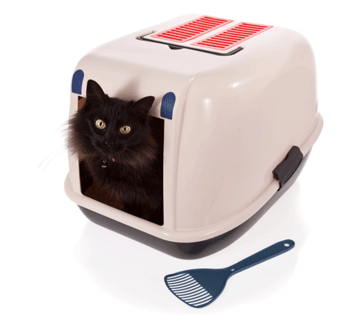Kittens require all the care you can provide to grow into healthy cats. Just like raising children, when proper care and training are provided at a young age, you will be being rewarded with strong, well-behaved adults.
If you’re planning to bring a kitten home, or you recently got one, you should start to take all the measures you can to see that your kitten is well-adjusted and healthy as soon as possible. You can begin with our tips for raising a healthy kitten.
Table of Contents
Wait Until the Right Time for Your Kitten to Come Home.
One thing you don’t want to do, no matter how much you need your new kitten home with you, is to bring it back before it is old enough. The early months are crucial in a kitten’s life; you should never take your new kitten away from his mother before he is at least 2 months old.
This phase of their life is very delicate, and they need all the protection from their mothers via nursing against diseases. This is why pet experts advise that the kittens stay with their mothers till they’re about eight weeks old, and by that time, they would have been weaned.
They also need this time in order to learn how to socialize from their mother and siblings. This will, in turn, help to reduce the possibility of behavioral issues in the future.
Visit the Vet ASAP and Continue Regularly.
Your breeder may have done their part in ensuring that the kitten and its mother are free from diseases; this becomes your responsibility when you get your kitten.
Your kitten needs all the protection possible from potentially fatal illnesses. At this very delicate stage of its life, it can be prone to these diseases. Viruses and bacteria travel through the air and can easily be carried into the home on people’s clothing and shoes. Your cat could also wander outside and meet a disease-bearing stray or a stray gets into the house. Although this is unlikely, you always have to prepare for every possibility.
These are just a few of the reasons you need to visit a vet when your cat first comes into your home and also subsequently.
At the vets, they should check your cat for fleas, heartworm, and other parasites, and they will deworm it if required. Heartworms may not bother cats as much as they do dogs, but they’re still susceptible.
Fleas are common cat parasites. Be proactive, you can ask your vet to recommend a topical flea preventative for your kitten when it reaches 8 or twelve weeks of age. There are, however, brands with formulations for kittens within 4 to 6 weeks of age.
Vaccinations are also important. These include vaccines for feline leukemia, distemper, and rabies. They often administer most of these vaccines when the kitten is about 8 weeks of age and boosted every few weeks until they’re about 16 weeks old. If your kitten will be older than 8 weeks by the time you bring it home, ask your breeder for proof of vaccinations.
The vet should also set the cat on an adult vaccination schedule after the first set and may also recommend other vaccines your pet will require.
Feed Your Kitten Only Food Specially Formulated for a Kitten
A kitten has its special nutritional needs, and its rapid growth and energy depend greatly on it. You may already know this; research has repeatedly shown that many kitten breeds develop into full-grown adults from the kitten stage in one year.
While there are several brands of food on the shelves of pet stores, you want to get only meals that are genuinely made to serve your kitten's nutritional needs. These meals should provide your feline's protein, phosphorus, calcium, vitamins, and other nutrients for optimum growth and health.
If someone already started your kitten on a formula before you brought it home, make sure to continue with that. Any abrupt change of diet can upset its tummy. If you have any specific meal type or brand planned, wait till after 2 or 3 days before gradually changing its diet.
You can start the new meal by mixing in quantities of the old food with it, so your kitten's tummy grows accustomed to the food.
Make sure the food you choose is labeled for “kittens” or “growth” and is one that contains real meat such as chicken instead of “chicken meal” or “meat meal” as a major ingredient.
Remember, kittens being obligate carnivores. need adequate meat to thrive. So, you want to avoid food containing fillers most especially those high in cereals. You can tell this by checking the food label.
As your kitten grows, you will need to adjust its food. You can switch to adult food when your kitten reaches 6 months of age, especially if it’s putting on too much weight while on kitten foods.
If it isn't overweight, you can wait till it is a year old to switch to adult food.
Also, you must decide if you want your kitten fed on dry kitten food or wet kitten food. They both have their pros and cons, and it would help if you knew all about them before you choose. Check this article to learn more about the best dry kitten food, or here for general feeding tips.

Socializing Your Kitten Is Necessary
If you’re looking to raise a well-adjusted and healthy kitten, it is important to socialize it, even after the first 8 weeks it spends with its mother and siblings. Regularly exposing your kitten to new animals and people will go a long way in helping to establish a lasting positive behavior.
A poorly socialized kitten is likely to develop behavioral issues such as aggression, timidity around humans or other animals, and fear.
You should continue socialization throughout your pet’s first year of life. Make conscious efforts during this period to introduce your kitten to your family members, visitors, and other pets.
Use Toys Instead of Hands
There are so many cat toys your pet will enjoy playing with instead of allowing it to bite or claw your hands. Playing with them using toys alone will teach kittens that hands are not playthings. If allowed to play rough, especially at their kitten stage, they’ll find it hard to grow out of it.
Get your kitten cat toys and avoid tolerating your kitten’s bites or clawing. Permitting this behavior encourages your cat to use its claws and mouth on you whenever it can; be it in anger or at play. Discouraging this habit isn't just for your own safety, biting, and clawing can cause problems during vet visits or when your cat is around new people or other pets.
Keep Your Kitten Under Close Supervision.
At this kitten stage, expect your pet to be naturally curious. However, this may frequently get it into trouble; it is small and may easily get wedged between appliances and furniture, get stepped on, or even fall into the bathtub or the toilet.
Your kitten needs your attention at this stage in its life, and until it learns to self-protect, you’re still his best and maybe the only line of protection.
Start a Grooming Routine
Few pets enjoy grooming time, but if you start early, your kitten will adjust. Establish a grooming routine you’ll comfortably be able to follow. For example, if you own a long-haired cat breed, it may need to be groomed daily, while short-haired breeds can be groomed once or twice weekly.
There is different and appropriate grooming equipment you should have in your pet supplies, and they’re available for purchase in pet shops and online stores.
Before the grooming session, show your kitten the grooming tools and introduce them to its body gently. This helps it relax and prepare for the session.
If you need any guidance on ear cleaning , we have provided a guide here.
You Should Consider Microchipping Your Cat
Pet microchips are implanted beneath the skin by a vet. This chip placed beneath the skin of the scruff transmits a unique number registered with a database containing your contact details.
If the cat ever goes missing and is later found and dropped at a shelter, they scan it for your contact details to enable them to find you.
Get Your Pet Spayed or Neutered
Spaying or neutering your pet is important if you’re not looking to breed new kittens from it. Spaying prevents pregnancy or heat, and spayed cats are less likely to spray urine or constantly get into fights.
Cats are generally old enough to be neutered at six months; however, some younger kittens may also be able to withstand the process. Your vet will decide this, so make an appointment and base your decision on his advice.
Lastly, litter-train your kitten. You’ll find quality litter boxes in pet stores and online. You should get them before your kitten comes home. You don’t want to be cleaning up after it every time, do you?
These are some of our tips for raising healthy kittens; we hope they help you to a great start with your cat.
Own a kitten and know other cat-raising tips you’ve had success with? Share in the comments.
About the Author
Kirsten Heggarty
Kirsten created The Pet Handbook with the aim of sharing her knowledge about pets, pet food, healthy habits, and more. All of her advice is based on years of her own experience with her pets, and feedback that she has received from grateful readers about her tips. If you want to know more please read the About Me page.









